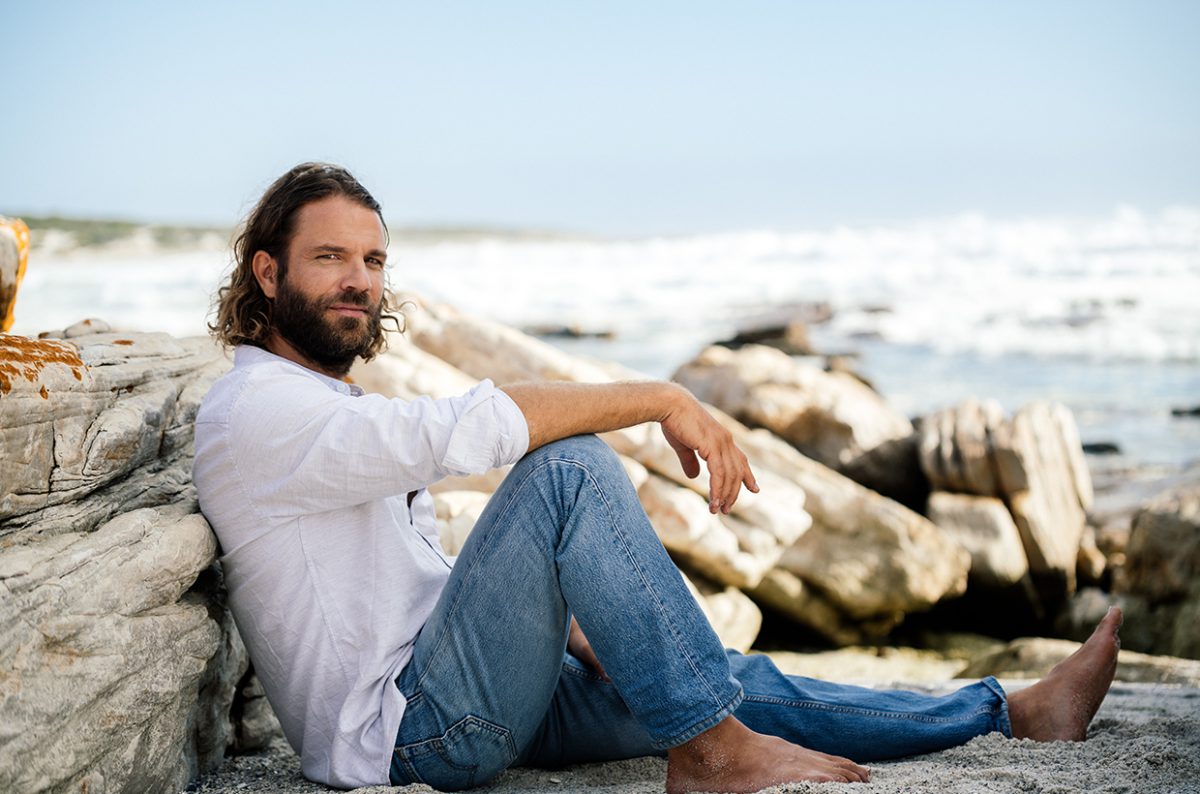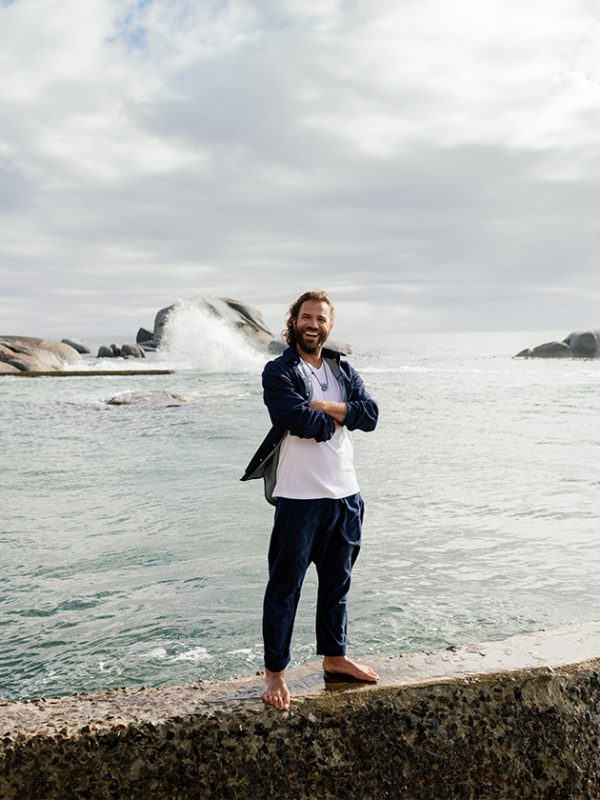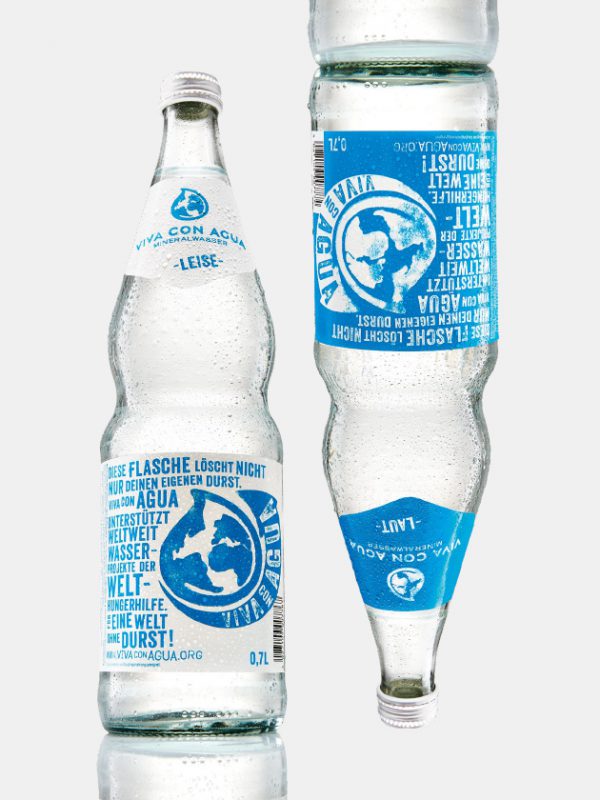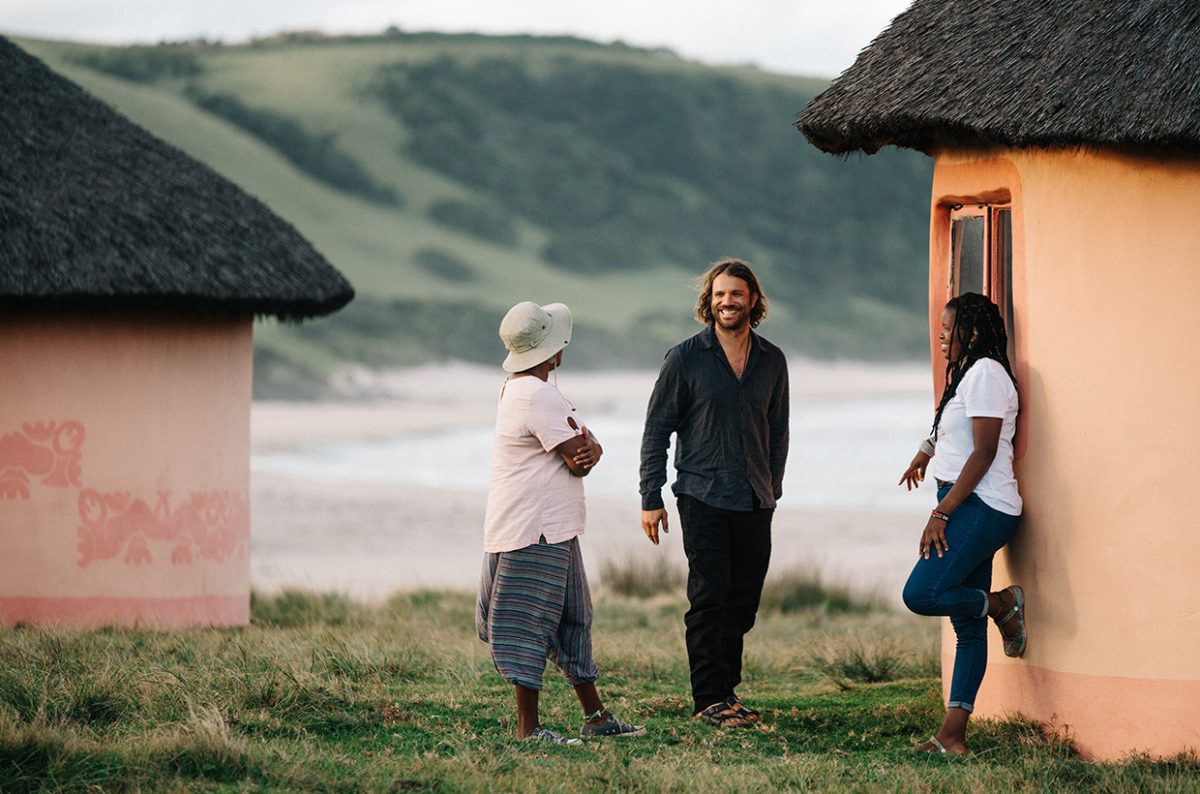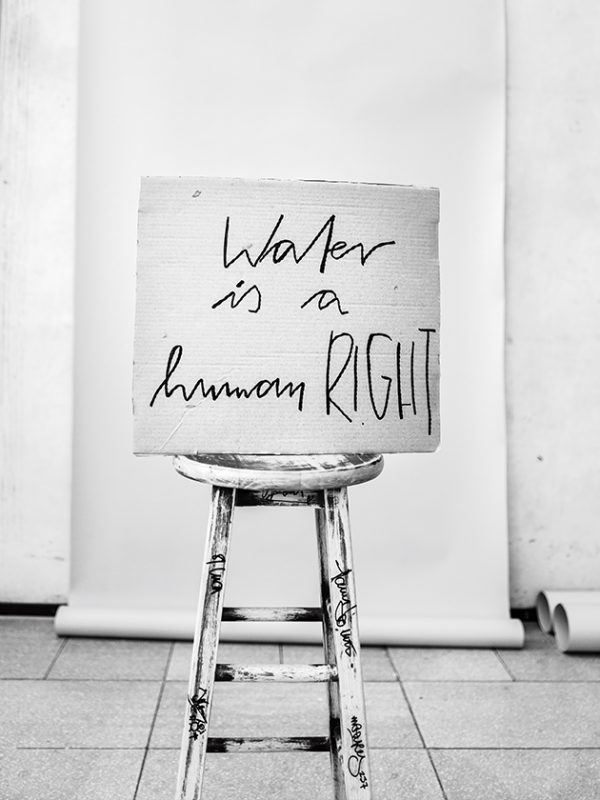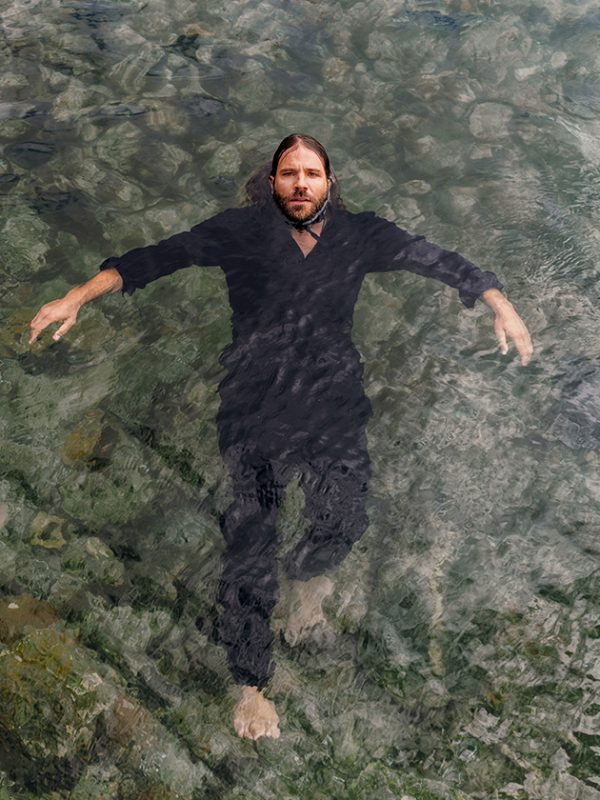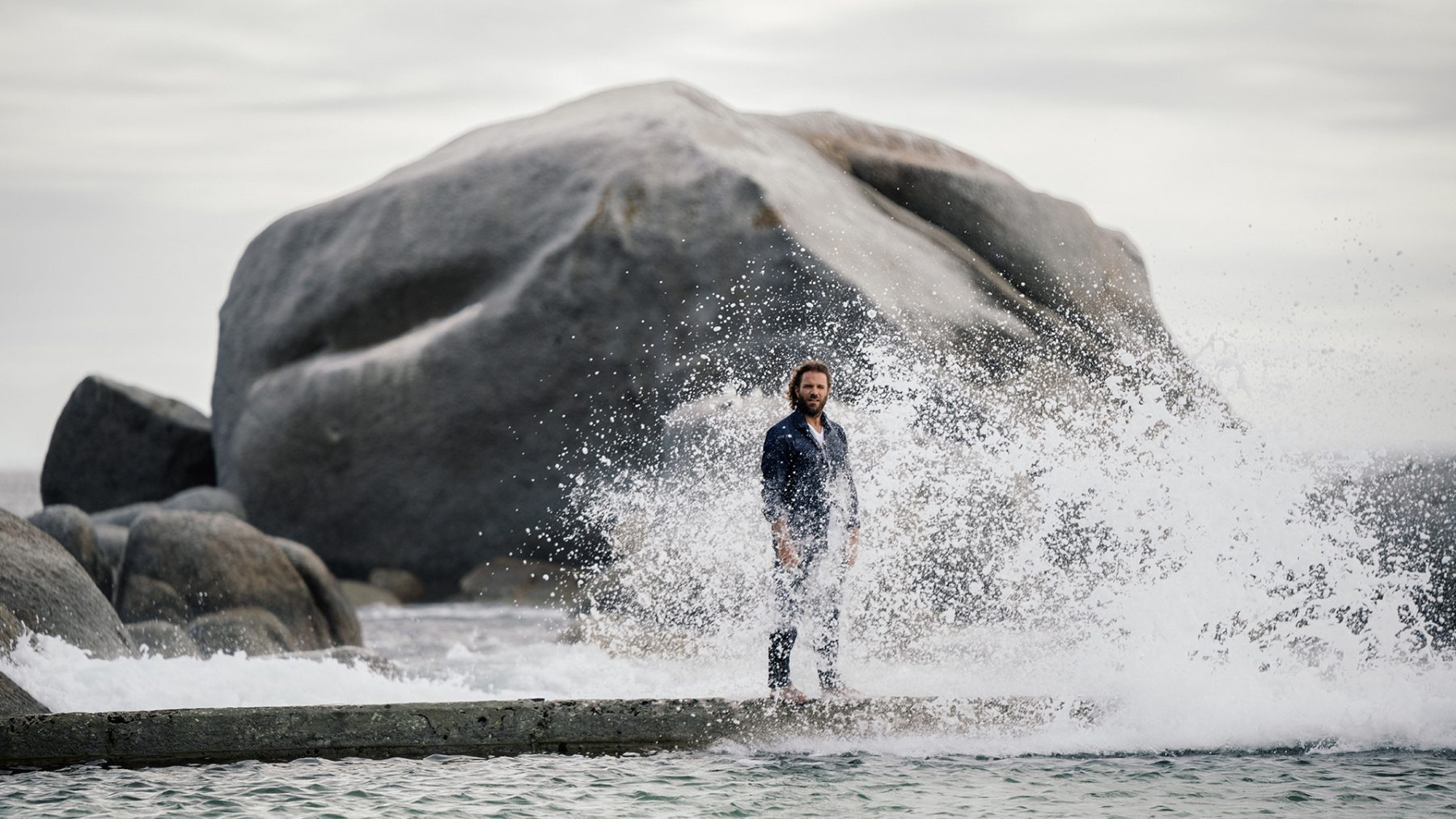Viva con Agua by Michaela Cordes | 4th June, 2021 | Personalities
Fighting for a purpose with a positive mindset – that was the idea of Benjamin Adrion when he created his nonprofit organization Viva con Agua 15 years ago. Every since, the former professional soccer player has helped over 3.6 million people gain access to clean drinking water. Now the father of two embarks on the next, more international chapter. With the first Villa Viva in South Africa.
Benjamin Adrion was just 25 when he made the life-changing decision to retire from professional soccer altogether. The wake-up call came in the form of a trip to Cuba and the realization that there is a global need: for access to clean drinking water. Fifteen years on the feel-good attitude and team spirit of his former soccer days are still alive and have helped his organization Viva con Agua become a global movement that counts 15,000 active volunteers in countries like Germany, Austria, Switzerland and Uganda. With the opening of the Villa Viva in Cape Town, the social entrepreneur is now heading into an international future.
“15 years ago, we started with two people. Today 15,000 volunteers support our work.” BENJAMIN ADRION
Almost 15 years ago exactly, you decided to change your life. Instead of signing with a football club for another season, you left professional soccer behind and created Viva con Agua – a charity organization fighting for access to clean drinking water for all. How does it feel today when you look back?
That was an important moment in my life, of course. Playing soccer had been my job for six years. I had started training professionally from the age of ten or twelve and made the national team at 14. In between I stopped playing soccer for about nine months when I was 18 because the daily grind was already starting to get to me. I realized that I had been wondering for a while: When would my life really start? At the time my team had won the German league title and had played for VfB Stuttgart, the club that has won the most German youth soccer league championships to date. I took it all very seriously. That’s why, looking back, I’ve never felt that I quit soccer early. Instead, I thought: I’ve already spent the first third of my life dedicated to that sport.
Where did you get the idea for Viva con Agua?
It was a lucky coincidence. Our first idea was to use the connections I had made via the German club I was signed to at the time, FC St. Pauli, to create a fresh, fun and enjoyable route into social activism. Our approach was to make the world a better place through networking, community and rock’n’roll. We wanted to create an “all-profit” organization because “nonprofit” just doesn’t sound like fun. In the beginning, the thing I was most concerned about was creating a movement, a platform and an ethos of “let’s get something done together.” That’s what “Viva” stands for and it still shows, even 15 years on – whether it’s Viva con Agua or Villa Viva, our new headquarters in the center of Cape Town – “Viva” is always part of it. What we are primarily about is creating connections, enjoying life and working for a cause. The focus on clean drinking water came about by connecting with the right partner organization. After attending a soccer training camp in Cuba, we were put in touch with Welthungerhilfe, a German NGO running a drinking water project locally. It was fortuitous, because water is essential for all life – everyone understands that. But at first, it wasn’t just about water for me, I wanted a strong message like: “Hey, we live such privileged lives and have so many opportunities. We have absolutely no excuse not to roll up our sleeves and organize help somehow together.”
Your first project kicked off a year before the official founding of your organization. Starting in 2005 and working with Welthungerhilfe, you installed water fountains in 153 kindergartens in Cuba. Today, Viva con Agua has 15,000 active volunteers in places like Germany, Austria, Switzerland, the Netherlands and Uganda. Last year Viva con Agua was also launched in South Africa. Where does your strong commitment to social issues come from – is it something you learned at home, growing up?
No, I wouldn’t say so. I grew up in southern Germany, in Stuttgart, the oldest of three siblings. So being the leader has always felt easy to me, whether as class speaker or captain of a soccer team. Also, I’ve always had a strong sense of fairness. I still notice this, like when my son makes a disparaging remark today to one of his buddies. Immediately, my alarm bells go off.
What was the particular moment that sparked your social activism?
It must have been on the trip back from Jamaica, that special island with its unique vibe and home of Rastafarian culture. We had a one-day stop-over in Miami Beach. In the evening we went to the famous Ocean Drive and were suddenly surrounded by stretch limos and lots of what I think were surgically enhanced people. They all looked like they were at a really cool party, but when you studied them more closely, you realized: They seemed to be made of plastic and empty inside! It felt like such a contrast to what I had experienced in Jamaica. A real culture shock! I just thought: Man, and this is what they call progress? This is what we are supposed to aspire to? Is this development? Just focusing on the exterior, with no connection to what’s actually important? I was 23 then, and it was the first time I deeply realized how skewed our priorities had become. It was an eye-opening moment. Today, I would advise anyone to spend some time in a non-industrialized country every now and again. It really changes your perspective and makes you realize how very privileged we are.
“Nearly 600 million people still don’t have access to drinking water. That’s what keeps me going.” BENJAMIN ADRION
Since the foundation of Viva con Agua, the global situation regarding drinking water has improved dramatically. Fifteen years ago, 1.2 billion people were still without access to clean drinking water, today it is only half that. These numbers sound like a big success. Has the need for water really decreased by half?
Of course this is encouraging. Since 2010, the UN has recognized access to clean water and safe sanitary facilities as a human right. Furthermore, thanks to our projects, Viva con Agua was able to improve the living conditions of 3.6 million people and keep increasing awareness of the issue. But we should not forget: There are still almost 600 million people without access to clean water – more than the entire population of the EU. And more than 2 billion people still don’t have access to proper sanitary facilities. On top of that we’re also heading for a water crisis. It is important to understand that private, personal water use represents only 10 percent of the global demand, while the majority, 90 percent, is used for agriculture and manufacturing. And that demand will only increase further. Add to that the impact of climate change. So the real message is: Great, more people have access. That’s progress, let’s keep it going. But at the same time, we can’t ignore the challenges we are facing ahead.
“There was that moment when I asked myself: When does my life after soccer begin?” BENJAMIN ADRION
You’re referring to virtual water – the amount of water that is actually needed to manufacture a certain product, right?
Exactly. It is a well-known fact that producing beef is extremely water-intensive (Editor’s note: Producing just 1 kilo of beef requires up to 15,000 liters of water), but also things like coffee, avocados or cotton have a large water footprint – and our consumption keeps rising. In the past, people used to live differently, for example they only had one Sunday roast a week. In the Western world today, people have gotten into the habit of consuming meat on a daily basis. This trend has now, belatedly, also reached other countries. Take South Africa, for example: In rural areas, people very rarely have meat. It’s a treat reserved for the holidays. But even in Cape Town, this has already changed completely. In my view, it’s an intrinsic development that isn’t just limited to the consumption of meat. People aspire to the best they can afford – a home of their own, a car. Everyone wants a lifestyle based on what they see in the West. The problem is: This role model is not sustainable.
… so you’re saying that when people reach a certain level of aff luence, only then do they start thinking about the fact that things can’t continue the way they’ve been going?
Yes, at some point you realize: All that money in the bank doesn’t make you happy. The new car is fun for two weeks but then you get used to it and it’s nothing special anymore. In addition, we’ve created an unsustainable template for living our lives, so we can’t now turn around and say to others: “Well, it was OK for us, but it isn’t for you.” That’s why the pressure on water systems remains huge and keeps rising steadily. This is also true in other areas: I recently read a report that said that in 2020, human-made mass had reached about 1.1 teratons, exceeding overall global biomass.
Despite this news, are you hopeful that people’s attitudes will have changed due to the COVID-19 crisis? Has the pandemic made humanity realize that we in the end only share this planet and that each of our actions impact one another?
I think there’s an element of that. On the other hand, there’s also a trend of countries turning inward and focusing on themselves. I’ve noticed that in Germany, for example, people have been criticizing the “catastrophic” slow rate of vaccination because the population won’t be fully vaccinated by July and maybe not until September or October of this year. At the same time, people are only marginally interested in the fact that more than 100 countries have not even received a single shipment of vaccines! In addition to this, I am worried about the fact that the pandemic has further widened the gap between rich and poor.
“COVID-19 felt like a punch to the gut of our core activities. All fundraising events came to a complete stop.” BENJAMIN ADRION
How has the pandemic impacted your business?
It came as quite a shock – as donations at social events are our only source of income. So from one day to the next, our fundraising activities just came to a complete stop. Viva con Agua mostly works together with festivals or concerts, or soccer-stadium events. COVID-19 was like a punch to the gut and it struck at Viva con Agua’s core activities. That said, we managed to get through last year considerably well, which is quite remarkable, and our chapter in Germany did particularly well. There, overall turnover in 2020 was only three percent less than in 2019 and we were able to transfer more donations to the water projects than ever before – a record-breaking amount of more than 3 million euros. This is partly due to us being able to cut costs thanks to the German government’s reduced working hours support program and thanks to scale down some expenditure. That’s gratifying and it shows that Viva con Agua has managed to become so flexible that we can emerge from a crisis even stronger. Pressure creates diamonds – and the same principle applies to us. The Viva con Agua mineral water company, however, is not doing quite as well. Because hospitality businesses were closed, we only managed to sell 27 million bottles of the projected 40 million.
For anyone who wants to support your work, besides donating to your organization, purchasing the Viva con Agua mineral water is the easiest and most logical way. It’s available at many beverage retailers in Germany, Austria and Switzerland and all profits from the mineral water business are reinvested into your charity projects. At the same time, the mineral water is your strongest marketing tool, creating awareness for your cause On the label, Viva con Agua describes its social activities to consumers. How exactly does the mineral water business work? Can you explain?
One hundred percent of the profits from the licensing fees go back into the social projects: 60 percent to Viva con Agua, 40 percent to the partners who reinvest that money into our other social enterprise models. So in the end all the profits are reinvested in good causes.
Viva con Agua has transformed from a Hamburg, Germany based organization to one that is now active on the international stage. Are there plans to work with personalities who are pursuing similar goals, like, for instance, Bill Gates?
Well, Bill Gates hasn’t called yet, but I would be more than happy to take his call (he laughs). In fact we have had some contact with the Bill & Melinda Gates Foundation already, as they also support water projects, of course. Our goal for the next 15 years is quite clear: we are now focussing on establishing an even more international approach. The Villa Viva in Cape Town, which we are in the process of establishing as our South African headquarters, was financed by investors who are friends of mine. For over 30 years, this location here in Cape Town was a stopping point for backpackers from all over the world – Brazil, Norway, Kenya. We would very much like for it to remain that way. So yes, absolutely: Cape Town is a radical, international departure for us!
Are former professional soccer player destined to reach their goals more efficiently? In what ways has your former career prepared you for achieving your goals in your current work with Viva con Agua?
There are actually quite a few parallels to running an organization and living among a society in a broader sense. Because the fundamental values of soccer are universal: Fair play! Or: You treat me well – I treat you well. There’s actually an interesting quote by Thomas Müller, uttered after the most recent Champions League season in which Bayern Munich played better than ever before. He said: “We argue about the best ways to help each other out.” If that’s your team’s mindset, you’ll be successful. And this isn’t just limited to soccer. We might write a book about this fascinating dynamic one day. Let’s see …
One last question: In 2009 you were awarded the medal of the Order of Merit of the Federal Republic of Germany by Horst Köhler, the Federal President of Germany at the time. You invited your parents to join you to that ceremony. Are they proud of their son?
(He smiles) My parents and I have a great relationship and I can definitely say that they like what we do.
